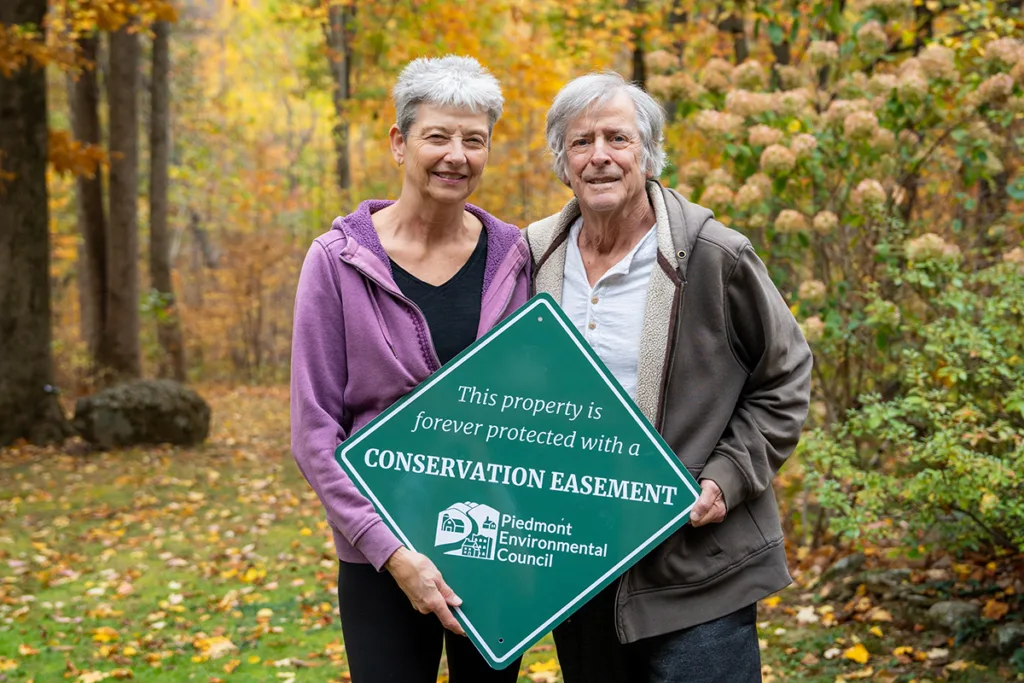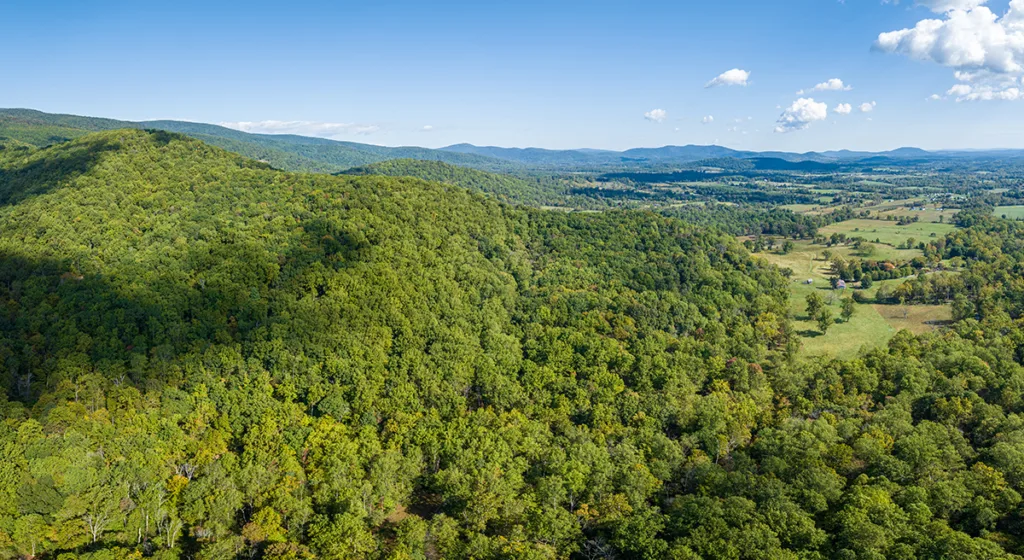Beth Plentovich and Howie Kelly know the true importance of relentless incrementalism for achieving exponential results. I first noticed this as we trudged up the steep arduous slopes of their forested property near the village of Flint Hill; in the moments I paused to catch my breath, Beth pointed out and removed many of the non-native invasive plant species we encountered during our trek. Nearly a year later, their perseverance struck me again, when Beth agreed to walk the entire perimeter with me to track down boundary markers — a truly Rappahannock County-esque activity — on a breezy day in late November. But the true cumulative achievement of their determination was when Beth and Howie — after several years of discussion and collaboration — permanently protected their 48-acre property with a conservation easement donated to The Piedmont Environmental Council.
Less than a mile from Shenandoah National Park, Beth and Howie have lived on and stewarded their property for over a decade, but this land has deep ties to the complex history of the park and the Flint Hill area. After the State of Virginia took land and homes from thousands of people to establish Shenandoah National Park, the Shenandoah Homesteads Project was created to relocate some of those who had been forcibly displaced. Nearly a century ago, Beth and Howie’s land was part of a property bought by the government for the Flint Hill Unit of this initiative.


Today, the property supports forest-dwelling animals and aquatic species such as the American eel. Its southern boundary runs along the Jordan River, a Class II Wild Trout Stream that provides important habitat for the Eastern brook trout. Once abundant in Virginia, the Commonwealth’s only native trout has almost vanished from the Virginia Piedmont in all but the remote headwater streams in and around Shenandoah National Park, including this stretch of the Jordan River now protected in perpetuity.
Beth and Howie are in good company when it comes to permanently protecting their land. Right next door, Over Jordan Farm is a regenerative agricultural operation that is permanently protected with a conservation easement held by the Virginia Outdoors Foundation. And excitement about Beth and Howie’s conservation extends to other neighbors as well; since they donated their easement, I’ve encountered nearby community members expressing their appreciation for Beth and Howie’s decision.
Looking ahead, Beth and Howie don’t see the permanent protection of their property as the final step of being responsible stewards. Instead, they continue to explore opportunities to improve and maintain the ecological health of their land.
Dedicated to Howie Kelly
I consider myself incredibly lucky to have been able to assist Beth and Howie in the donation of the conservation easement protecting their very special property. I’m particularly grateful to have gotten to know Howie, who passed away earlier this year. Howie was an inspiring and kind pillar of the Rappahannock community whose legacy extends beyond the immensely generous decision that he and Beth made to permanently protect their land. — Laura O’Brien
This article appeared in the 2024 spring edition of The Piedmont Environmental Council’s member newsletter, The Piedmont View. If you’d like to become a PEC member or renew your membership, please visit pecva.org/join.
